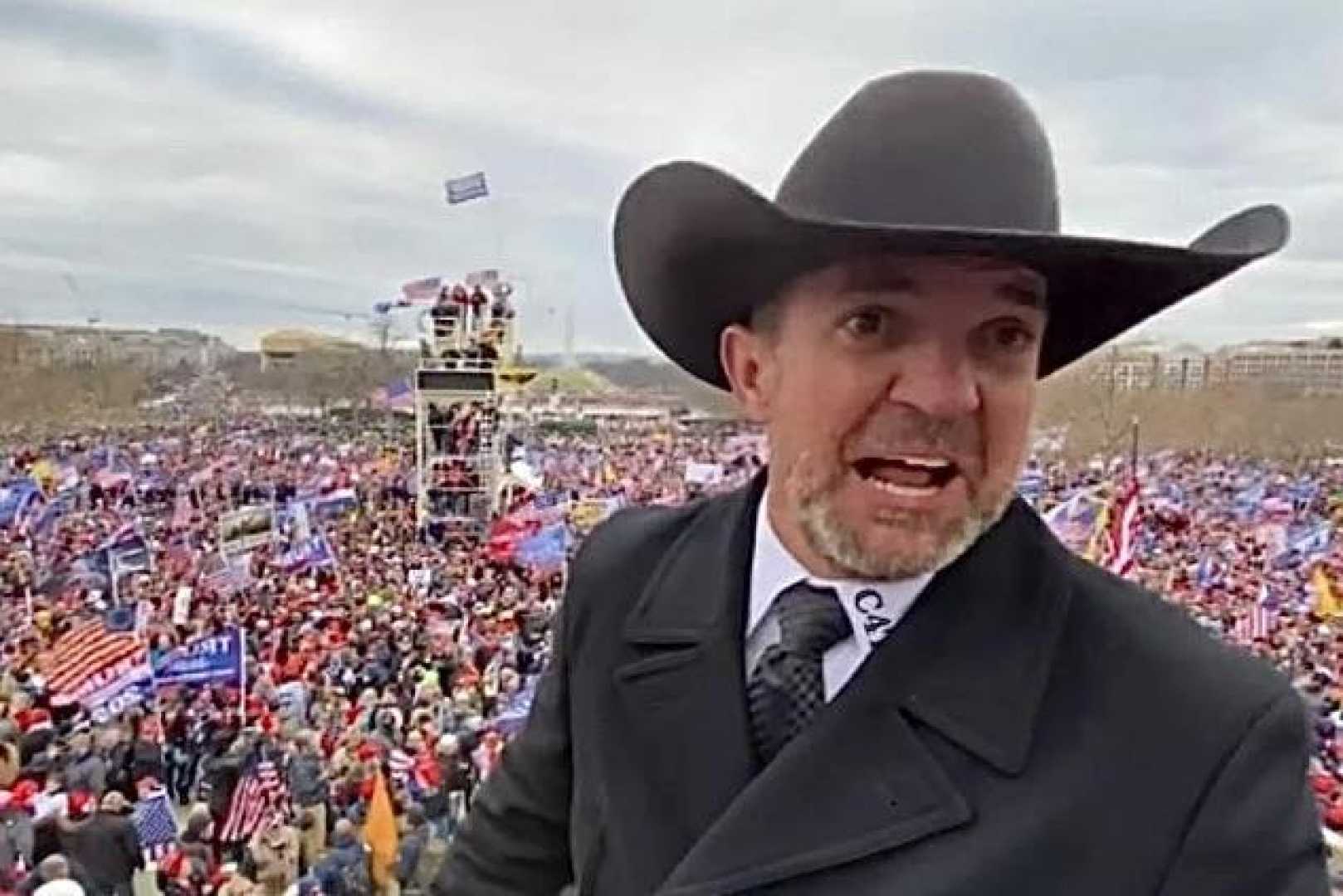Politics
Federal Appeals Court Upholds Conviction of ‘Cowboys for Trump’ Founder Couy Griffin in Jan. 6 Riot Case

A federal appeals court in Washington, D.C., has upheld the conviction of Couy Griffin, the founder of the group ‘Cowboys for Trump,’ in a significant ruling related to the January 6, 2021, Capitol riots. Griffin, a local official from New Mexico, was found guilty of two misdemeanors, including trespassing, for his actions during the riot.
Griffin had scaled a stone wall outside the Capitol to reach the inauguration platform, where he proceeded to the base of the inaugural stage and eventually made his way onto the stage itself. He was involved in various activities that contributed to the chaos, including using a bullhorn to lead the rioters in prayer and making comments about the smell of pepper spray used by law enforcement.
The appeals court decision, issued on October 22, 2024, clarifies the federal protections that the Secret Service can enforce, particularly in areas restricted for the safety of public officials. Judge Nina Pillard of the D.C. Circuit emphasized that the foundation of the Secret Service’s power to restrict access does not require the trespasser to comprehend the reasons behind the restricted status of the area.
The ruling rejected Griffin’s argument that he needed to be aware of the specific reasons for the restricted area, such as the presence of Vice President Pence. Judge Pillard stated that adopting such a stipulation could significantly impede the Secret Service’s ability to manage potential threats.
One of the judges on the panel, Judge Katsas, dissented from the majority opinion, arguing that prosecutors should have been required to demonstrate that Griffin recognized the seriousness of the restricted area and understood that Vice President Pence could have been present. Katsas highlighted that among the 470 trespassing convictions related to the January 6 riots, trial judges have had differing opinions on the extent to which those involved were aware of Pence’s presence.
The decision may not be the final word in Griffin’s case, as he could potentially appeal to the U.S. Supreme Court, which has shown some interest in his case).












